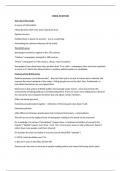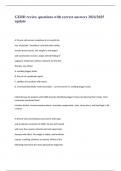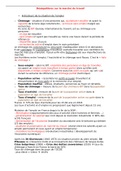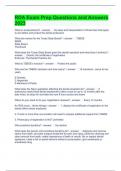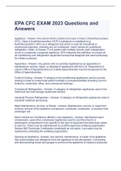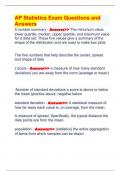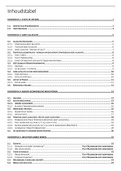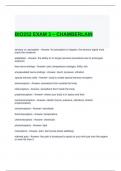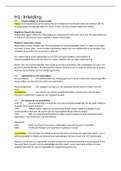MEDIA IN BRITAIN
The role of the media
A source of information
Media decides what is the more important issue
Opinion formers
Holding those in power to account – act as a watchdog
Articulating the opinions/interests of the public
The British press
Newspapers started to appear in the 17th century
“Modern” newspapers emerged in 18th century
“Penny” newspapers in 19th century; cheap, mass circulation
Newspapers have often been more partisan than TV or radio – newspapers have not been regulated
as much as TV which has allowed them to endorse political parties or candidates.
Features of the British press
Relative openness (social democratic) – they feel their job is not just to inform but to educate and
improve the moral standard of the nation. Telling people how to live their lives. Problematic as
journalists themselves are very hypocritical.
Deference to the system of British politics (increasingly under strain) – press has fed into this
environment of hating politicians and distrusting them. Press are much more willing to be critical of
the monarchy now compared to before but only attack certain members.
Often extremely personal
Extremely sensationalist/negative – reflection of the fact good news doesn’t sell.
Extremely partisan
Little difference between private/personal (compared to Europe) – no boundaries
The UK has one of the highest levels of newspaper reading in the world (at the moment)
On a weekday, the serious (“broadsheet”) papers have a combined circulation of around 2.5m.
Popular (“tabloid”) papers over 8.5m = sum 11m. Lot are given away or sold at discount. Doesn’t
reflect how many people read them (shared)
On Sundays the total circulation is around 12m (of which 80% “tabloids”)
In 1950s, total circulation was 17m.
In the last 5 years it has fallen off the cliff.
Recent years has seen an increase in people reading online only instead of buying hard copies.
, British media
British Broadcasting Company (private) formed 1922. British Broadcasting Corporation, BBC (public),
established 1927. Public service body 'acting in the national interest ‘. Funded by licence fees.
Aim to entertain, educate and inform.
BBC monopoly on radio broadcasts until early 1970s. In the 1960s, commercial broadcasts from
international waters and abroad.
Legal domestic commercial radio began 1973.
Today over 200 independent local stations in UK, around 25 in Scotland.
British TV
After WWII, broadcasts began in 1946, and outside London in 1949. In 1950, 344,000 TV licences in
Britain, in 1955 4.5m (first year of Independent TV). Today around 22m.
By 1964, 90 per cent of British households had TV.
TV came early to Britain in a European comparison. In France TV developed in the late 1950s.
President de Gaulle used the TV medium to great effect.
On-going developments
Free newspapers, funded by advertisements, have existed for some years, but a relatively new type,
distributed daily in big cities (‘Metro’, etc) has grown in importance.
Meanwhile, many traditional newspapers have been forced to close down
Thus, the political diversity of the newspaper output has declined – decrease in local newspapers
News via Internet is increasingly challenging the industry
All types of media are increasingly being challenged by the new media
Not just declining revenues from advertising
Also, a shift in who can create and distribute content
The line between public and media is increasingly blurred – anybody can now become a journalist
Theories of political communication
Key elements in communication theory:
The source of a message
The message itself
The channel by which the message is sent
The recipient of the message – what do we focus on? How does it affect us?
The response to, or effect of, the message – difficult to measure impact
In the case of political interviewing
Source: the candidate
Message: the policies of the candidate (or party)
The role of the media
A source of information
Media decides what is the more important issue
Opinion formers
Holding those in power to account – act as a watchdog
Articulating the opinions/interests of the public
The British press
Newspapers started to appear in the 17th century
“Modern” newspapers emerged in 18th century
“Penny” newspapers in 19th century; cheap, mass circulation
Newspapers have often been more partisan than TV or radio – newspapers have not been regulated
as much as TV which has allowed them to endorse political parties or candidates.
Features of the British press
Relative openness (social democratic) – they feel their job is not just to inform but to educate and
improve the moral standard of the nation. Telling people how to live their lives. Problematic as
journalists themselves are very hypocritical.
Deference to the system of British politics (increasingly under strain) – press has fed into this
environment of hating politicians and distrusting them. Press are much more willing to be critical of
the monarchy now compared to before but only attack certain members.
Often extremely personal
Extremely sensationalist/negative – reflection of the fact good news doesn’t sell.
Extremely partisan
Little difference between private/personal (compared to Europe) – no boundaries
The UK has one of the highest levels of newspaper reading in the world (at the moment)
On a weekday, the serious (“broadsheet”) papers have a combined circulation of around 2.5m.
Popular (“tabloid”) papers over 8.5m = sum 11m. Lot are given away or sold at discount. Doesn’t
reflect how many people read them (shared)
On Sundays the total circulation is around 12m (of which 80% “tabloids”)
In 1950s, total circulation was 17m.
In the last 5 years it has fallen off the cliff.
Recent years has seen an increase in people reading online only instead of buying hard copies.
, British media
British Broadcasting Company (private) formed 1922. British Broadcasting Corporation, BBC (public),
established 1927. Public service body 'acting in the national interest ‘. Funded by licence fees.
Aim to entertain, educate and inform.
BBC monopoly on radio broadcasts until early 1970s. In the 1960s, commercial broadcasts from
international waters and abroad.
Legal domestic commercial radio began 1973.
Today over 200 independent local stations in UK, around 25 in Scotland.
British TV
After WWII, broadcasts began in 1946, and outside London in 1949. In 1950, 344,000 TV licences in
Britain, in 1955 4.5m (first year of Independent TV). Today around 22m.
By 1964, 90 per cent of British households had TV.
TV came early to Britain in a European comparison. In France TV developed in the late 1950s.
President de Gaulle used the TV medium to great effect.
On-going developments
Free newspapers, funded by advertisements, have existed for some years, but a relatively new type,
distributed daily in big cities (‘Metro’, etc) has grown in importance.
Meanwhile, many traditional newspapers have been forced to close down
Thus, the political diversity of the newspaper output has declined – decrease in local newspapers
News via Internet is increasingly challenging the industry
All types of media are increasingly being challenged by the new media
Not just declining revenues from advertising
Also, a shift in who can create and distribute content
The line between public and media is increasingly blurred – anybody can now become a journalist
Theories of political communication
Key elements in communication theory:
The source of a message
The message itself
The channel by which the message is sent
The recipient of the message – what do we focus on? How does it affect us?
The response to, or effect of, the message – difficult to measure impact
In the case of political interviewing
Source: the candidate
Message: the policies of the candidate (or party)


